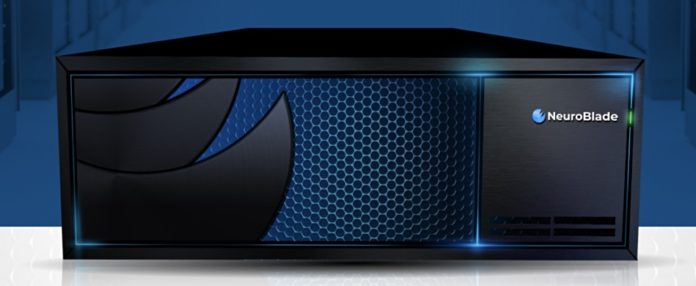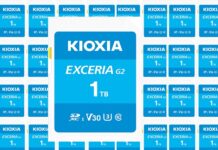An Israeli startup called NeuroBlade has exited stealth mode, built a processing-in-memory (PIM) analytics chip combining DRAM and thousands of cores, put four of them in an analytics accelerating server appliance box, and taken in $83 million in B-round funding.
The idea is to take a GPU approach to big data-style analytics and AI software by employing a massively parallel core design, but take it further by layering the cores on DRAM with a wide I/O bus architecture design linking the cores and memory to speed processing even more. This design vastly reduces data movement between storage and memory and also accelerates data transfer between memory and processing cores.
A statement from CEO Elad Sity said: “We built a data analytics accelerator that speeds up processing and analysing data over 100 times faster than existing systems. Based on our patented XRAM technology, we provide a radically improved end-to-end system for the data centre.”
A supportive quote from Patrick Jahnke, head of the innovation office at SAP, which has been working with NeuroBlade, said: “The performance projections and breadth of use cases prove great potential for significantly increased performance improvements for DBMS at higher energy efficiency and reduced total cost of ownership on-premises and in the cloud.”
PIM XRAM chip
The rationale is the same as for having GPUs accelerate graphics workloads, but taken the extra step forward with a PIM architecture called XRAM computational memory. NeuroBlade says the XRAM processors “enable the system to compute inside the memory itself, drastically reducing data movement, saving energy, and speeding up data analytics processing times.”
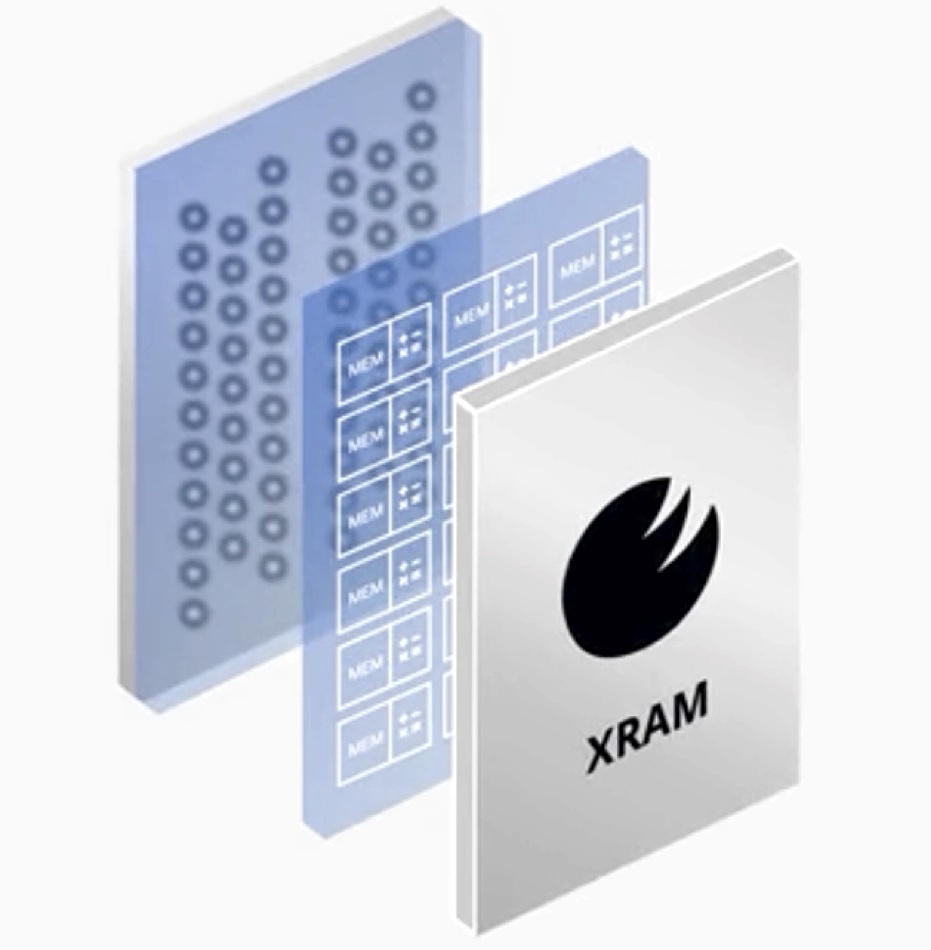
The PIM XRAM chip is embedded into an Intense Memory Processing Unit (IMPU) and the appliance, in which a quartet of IMPUs is installed, is called Xiphos. This, NeuroBlade says, “has a parallel, scalable, and programmable architecture that is optimised for accelerated data analytics, enabled through terabytes-per-second of memory bandwidth.”
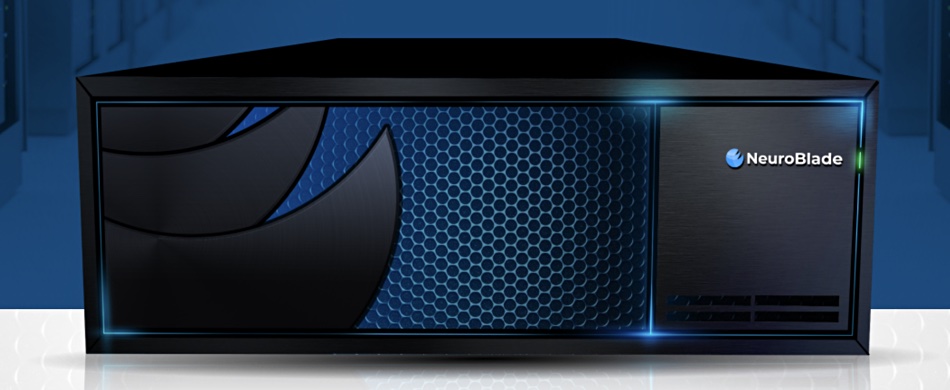
The Xiphos motherboard has a PCIe capability about which NeuroBlade said: “Everything is connected on top of PCIe fabric.” The appliance contains local direct-attached NVMe storage, with up to 32 NVMe SSDs per appliance. An x86 CPU running Linux acts as the appliance controller.
An Insights Data Analytics software suite is said to provide the software needed to support high-performance data analytics on Xiphos hardware and to integrate with the existing ecosystem.
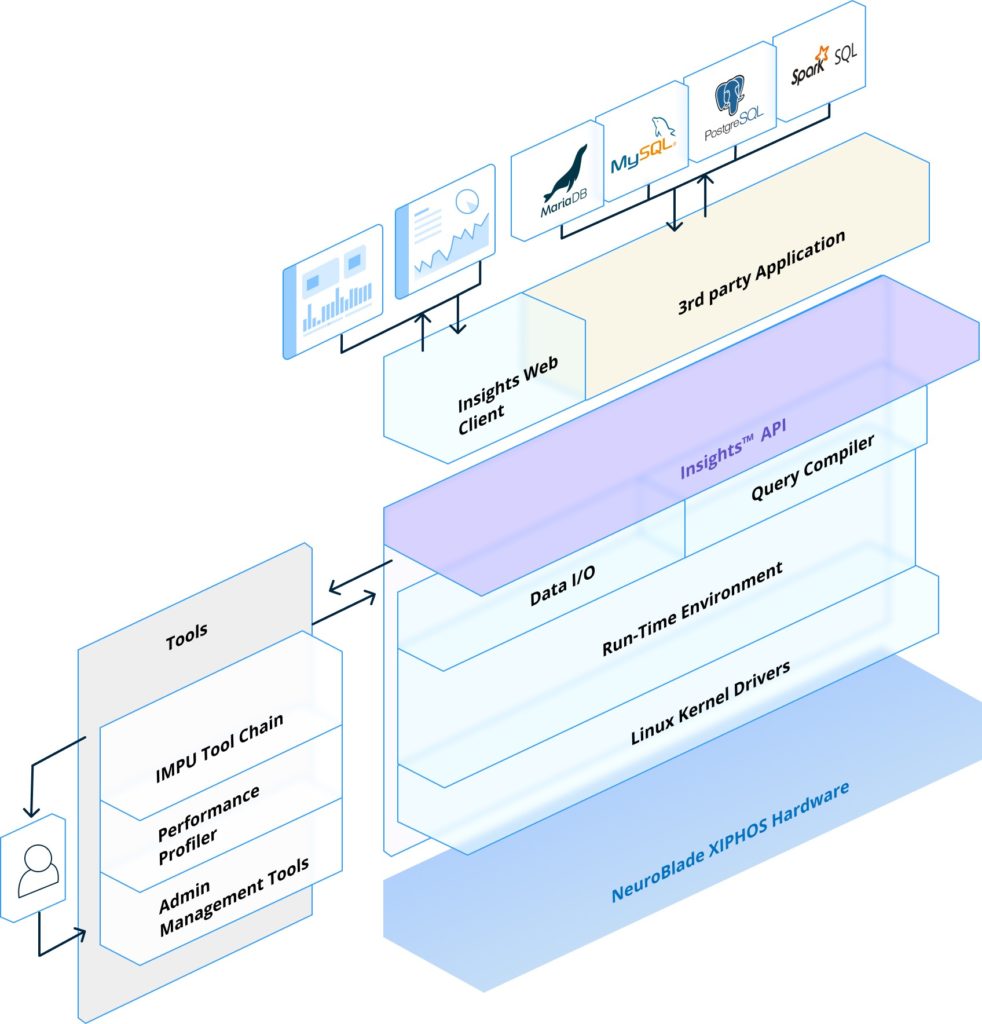
We asked about the bandwidth on the wide I/O bus and a spokesperson said: “We are talking about multiple x16 lanes PCIe buses, the official spec is still under NDA at this stage.”
We also asked what the 100x performance increase was based upon and were told: “We compare to standard TPC benchmarks and queries we work on with customers.”
Speedata
Coincidentally Israel-based Speedata exited stealth at the end of September and announced an APU or Analytics Processing Unit chip along with $55 million in funding. A NeuroBlade spokesperson told us: “NeuroBlade has paying customers already and is shipping out to data centres all over the world — a big differentiator here.” NeuroBlade is further along in the process as well, as its technology uses XRAM computational memory.
NeuroBlade said: “The data analytics market is projected to be somewhere at $65 billion so the fact that Speedata identified the same target is great. We see even the hyperscalers like Amazon working on new solutions. Couple the giants with other startups it really just suggests that this is a new market with plenty of room to approach in different ways.”
NeuroBlade background
NeuroBlade was founded in 2016 in Tel Aviv by CEO Elad Sity and CTO Eliad Hillel who is also VP for Product Strategy, and formally launched as a company in 2018. Sity and Hillel were in the technological unit of Israel’s Intelligence Corps and then worked at SolarEdge.
It raised a $4.5 million seed round in 2018 and a $23 million A-round the next year. The B-round was led by Corner Ventures with contribution from Intel Capital, and supported by current investors StageOne Ventures, Grove Ventures and Marius Nacht plus technology companies including MediaTek, Pegatron, PSMC, UMC and Marubeni. Total funding is now $117.5m.
Hillel and Sity have filed patents, such as US patent number 10,762,034 for memory-based distributed processor architecture.
The company has passed the 100-employee count and started shipping its Xiphos data accelerator to customers and partners worldwide. The new cash will be used to expand the engineering teams in Tel Aviv and build out sales and marketing teams globally.
Bootnote: A xiphos is a double-edged, Iron Age straight and short sword used by the ancient Greeks.


